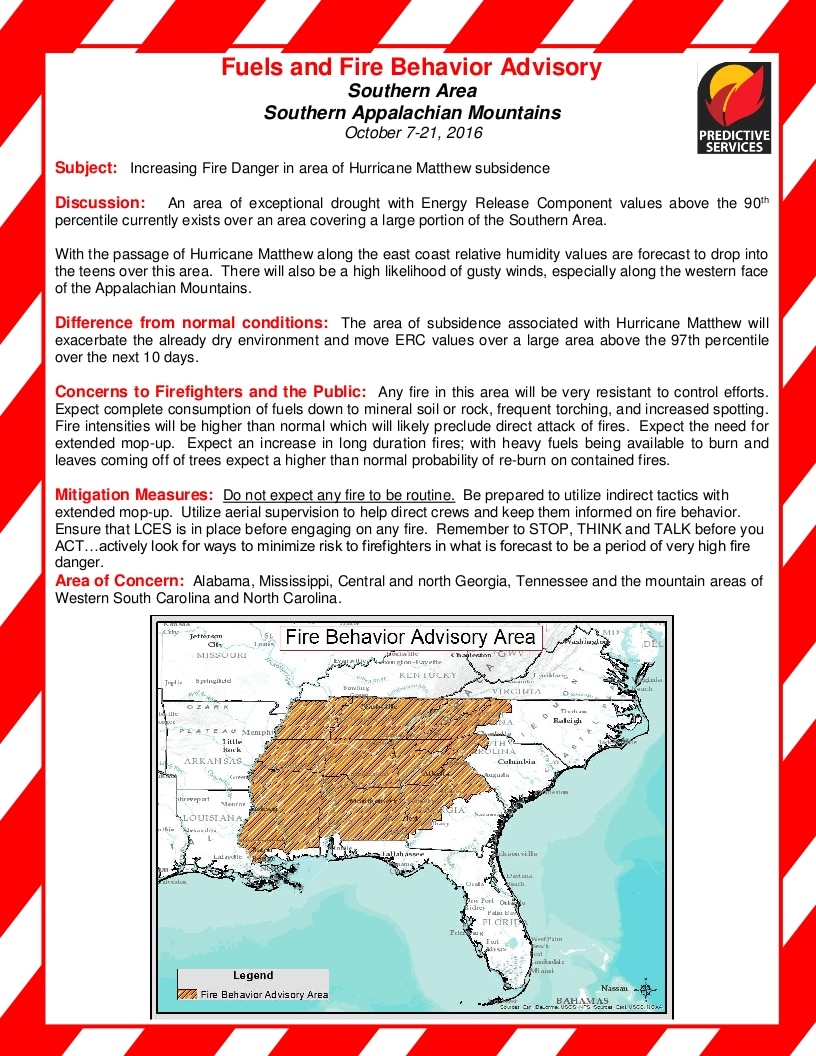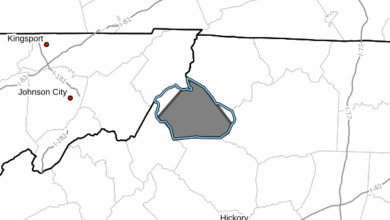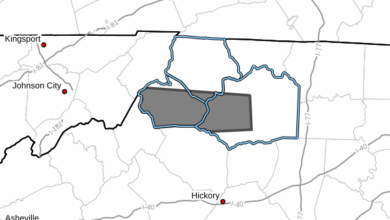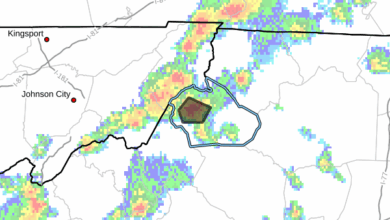Last Updated on February 17, 2023 9:22 am
The U.S. Forest Service and the North Carolina Forest Service are warning the public of increasing fire danger in western North Carolina.
Last weekend's rainfall was not widespread and not enough to alleviate the dry conditions and persistent drought that has resulted from low rainfall in the past few months. Fuels in the forest will readily burn if ignited. Fire danger is predicted to remain high for the rest of October and into December.
Watauga County Forest Ranger Stuart Scott tells WataugaOnline.com, “I would like to warn landowners to be extremely cautious with debris and leaf burning as conditions are prime for forest ignition.”
Both agencies would like to remind the public to use caution in any outdoor burning. Even when burn-bans are not in effect, conditions may not be advisable for outdoor fires. The public is discouraged from burning yard waste during periods of low humidity or high winds.
Ranger Scott reminds Watauga County residents of the following burning tips locally:
Never burn debris against the slope of the mountain. Many fires escape a landowners control because the ignition takes place too closely to driveway edges, embankments, or slope where fire can move quickly uphill and escape control. Move debris piles to the middle of an open area and dig a fire line around the piles to be burned.
Also keep water nearby to douse flames if the wind moves embers into an unanticipated area. Even a small amount of plain water in a weed sprayer can extinguish a good deal of low intensity woodland fire.
Consider burning your vegetative debris on a gravel or paved surface. Again, this will lessen the threat of fire spread towards wooded areas.
Maintain a watch on your fire at all times. Never leave an ignited fire until it has been fully extinguished. This protects you and your neighbors but is also a state law. NC General Statute 14-140.1 states “Any person, firm, corporation, or other legal entity who shall burn any brush, grass, or other material whereby any property may be endangered or destroyed, without keeping and maintaining a careful watchman in charge of the burning, shall be guilty of a Class 3 misdemeanor which may include a fine”
Never burn debris near flammable items around your home, including stacked firewood, decks, leaf litter, and landscaping. Many of our native plants in Watauga County, including Rhododendron and Mountain laurel are highly flammable and contain volatile chemicals that burn at over 1000°, which can easily ignite structures.
Remember that the largest threat to your home from wildfire damage is not from large scale running wildfires, but rather an ember shower produced by nearby wildland fires. Give your home defensible space by moving combustible items away from the home itself. Never stack combustible items under or near a deck, porch, or garage where cascading embers can land and ignite materials adjacent to the home.
* Always consider alternatives to burning.
* Obtain a burning permit at an NCFS office or online at http://ncforestservice.gov/burn_permits/burn_permits_main.htm
* Check the weather – don't burn on dry, windy days.
* Know your local burning laws.
* Be prepared with water, a shovel and phone.
* Stay with your fire until it is completely out.
* Allow the wood to burn completely to ash, if possible
* Pour lots of water on the fire, drown ALL embers, not just the red ones
* Pour until hissing sound stops
* Stir the campfire ashes and embers with a shovel
* Scrape the sticks and logs to remove any embers
* Stir and make sure everything is wet and they are cold to the touch
* If you do not have water, use dirt. Mix enough dirt or sand with the embers.
* Continue adding and stirring until all material is cool.
* Do NOT bury the fire as the fire will continue to smolder and could catch roots on fire that will eventually get to the surface and start a wildfire.


















